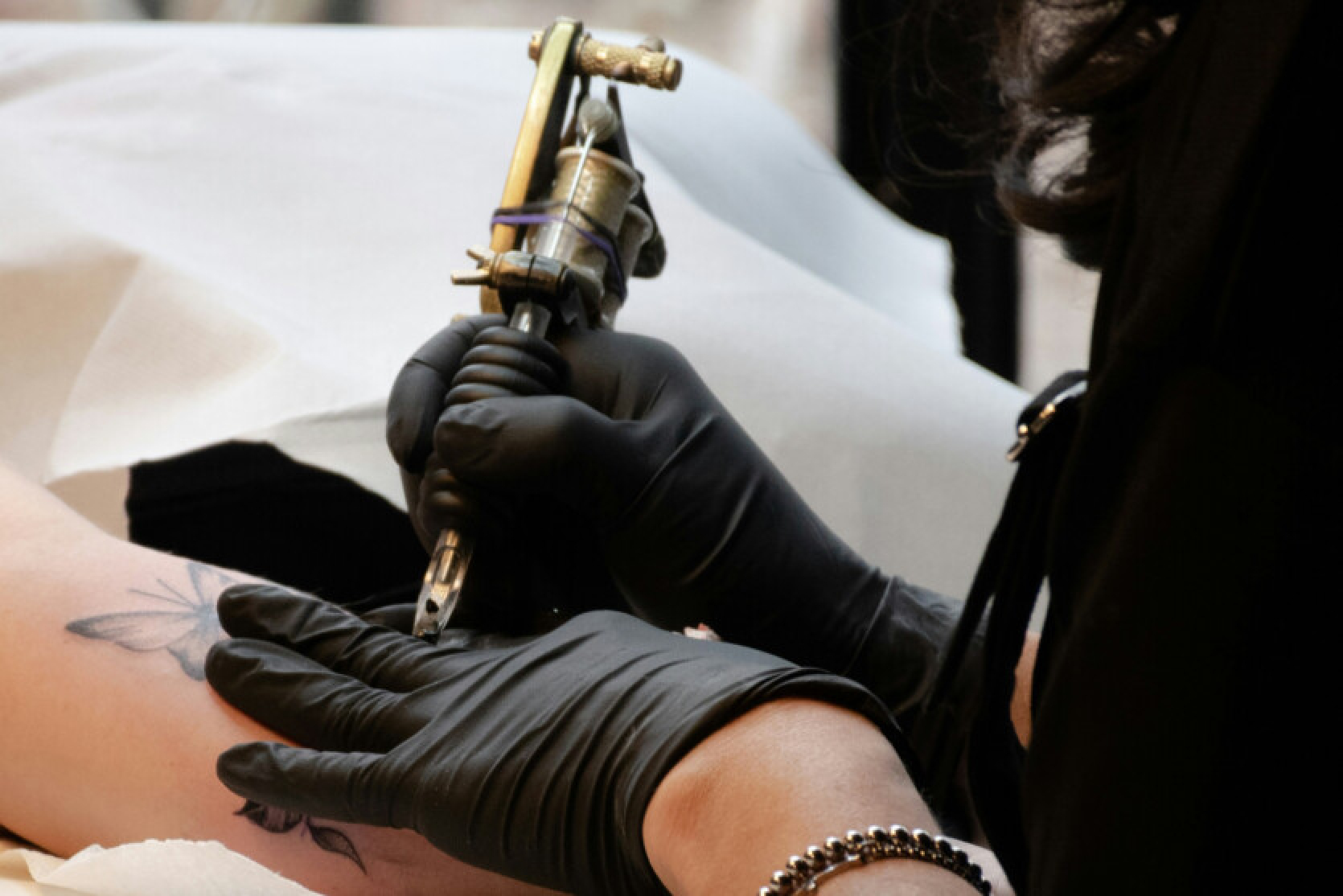A study has revealed bacterial contamination in approximately 35% of commercial tattoo inks and permanent makeup in the United States.
Researchers found both anaerobic and aerobic bacteria in these commercial tattoo paints. The findings, published in the Applied and Environmental Microbiology, a journal of the American Society for Microbiology, suggest that these inks could potentially lead to human infections. This research is particularly significant as it is the first to investigate the presence of anaerobic bacteria in commercial tattoo inks.
“Our results indicate that unopened and sealed tattoo inks may harbor anaerobic bacteria that thrive in low-oxygen environments, such as the dermal layer of the skin, alongside aerobic bacteria. This suggests that contaminated tattoo inks could be a source of infection from both types of bacteria. These findings underscore the need to monitor these products for both aerobic and anaerobic bacteria, potentially including pathogenic microorganisms,” stated correspondent author Seong-Dae (Peter) Kim, Ph.D., a microbiologist at the National Center for Toxicological Research, FDA.
The primary goal of the new study was to assess the prevalence of both types of microbial contamination in tattoo inks available on the U.S. market. To identify aerobic bacteria, researchers mixed 1-2 grams of tattoo ink solution with the appropriate medium and incubated the bacteria in a standard incubator, while anaerobic bacteria were placed in anaerobic chambers. These chambers remain oxygen-free by continuously flushing the mix with gases like nitrogen, carbon dioxide, and hydrogen. The researchers conducted this procedure on a total of 75 tattoo inks from 14 different manufacturers.
They discovered that around 35% of the tattoo or permanent makeup inks were contaminated. “Both types of bacteria, those that require oxygen and those that do not, can contaminate the inks. There was no clear correlation between a product label claiming sterility and the actual absence of bacterial contamination,” Kim noted.
“The growing popularity of tattoos in recent years coincides with an increase in complications or adverse reactions associated with tattooing. It should be noted that microbial infections are just one aspect of these complications. Besides microbial infections, a significant part of these issues includes immunological complications such as inflammatory reactions and allergic hypersensitivity, as well as toxic reactions. In light of our study results, we want to emphasize the importance of continuous monitoring of these products to ensure microbial safety,” the researcher commented.
Kim and his colleagues plan to advance their research in two key areas. They will develop more effective methods for detecting microbes in tattoo inks, making the process faster, more accurate, and less labor-intensive. They will also conduct systematic studies to deepen the understanding of microbial contamination in tattoo inks and permanent makeup, including investigating the emergence and diversity of microbial contaminants, which is vital for preventing contamination of these products.
Source: SciTechDaily













Comments (0)
There are no comments for now